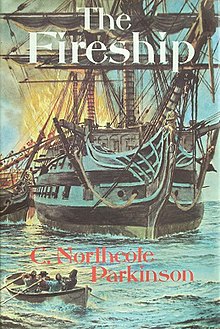
Vice-Admiral William Bligh was a British officer in the Royal Navy and a colonial administrator. He is best known for the mutiny on HMS Bounty, which occurred in 1789 when the ship was under his command. The reasons behind the mutiny continue to be debated. After being set adrift in Bounty's launch by the mutineers, Bligh and those loyal to him stopped for supplies on Tofua, losing a man to natives. Bligh and his men reached Timor alive, after a journey of 3,618 nautical miles.

Admiral Adam Duncan, 1st Viscount Duncan was a British admiral who defeated the Dutch fleet off Camperdown on 11 October 1797. This victory is considered one of the most significant actions in naval history.

The Spithead and Nore mutinies were two major mutinies by sailors of the Royal Navy in 1797. They were the first in an increasing series of outbreaks of maritime radicalism in the Atlantic World. Despite their temporal proximity, the mutinies differed in character. The Spithead mutiny was a simple, peaceful, successful strike action to address economic grievances, while the Nore mutiny was a more radical action, articulating political ideals as well, which failed.

The Battle of Camperdown was a major naval action fought on 11 October 1797, between the British North Sea Fleet under Admiral Adam Duncan and a Batavian Navy (Dutch) fleet under Vice-Admiral Jan de Winter. The battle, the most significant action between British and Dutch forces during the French Revolutionary Wars, resulted in a complete victory for the British, who captured eleven Dutch ships without losing any of their own.

HMS Agamemnon was a 64-gun third-rate ship of the line of the British Royal Navy. She saw service in the American Revolutionary War, French Revolutionary, and Napoleonic Wars and fought in many major naval battles. She is remembered as Horatio Nelson's favourite ship, and she was named after the mythical ancient Greek king Agamemnon, the first ship of the Royal Navy to bear the name.
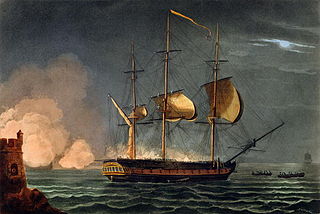
HMS Hermione was the lead ship of the Hermione class, a six-ship class of 32-gun fifth-rate frigates of the Royal Navy. She was launched on 9 September 1782 at Bristol. Hermione was commissioned and then paid off a number of times during the 1780s. She underwent repairs between October 1790 and June 1792, followed by a period spent refitting at Chatham Dockyard until January 1793. She was recommissioned in December 1792 before sailing to the Jamaica in March 1793. Hermione served in the West Indies during the early years of the French Revolutionary Wars, participating in the British attack on Port-au-Prince, where she led a small squadron that accompanied troop transports.
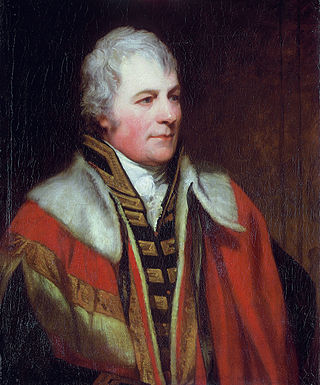
Admiral William Carnegie, 7th Earl of Northesk was a British naval officer who served during the American Revolutionary War, French Revolutionary War, and Napoleonic Wars. While in command of HMS Monmouth he was caught in the Nore Mutiny of 1797 and was the officer selected to relay the demands of the mutineers to George III. He most notably served as third-in-command of the Mediterranean Fleet at the Battle of Trafalgar in HMS Britannia. He later became Rear-Admiral of the United Kingdom and Commander-in-Chief, Plymouth.

H.M.S. Defiant is a British naval war CinemaScope and Technicolor film from 1962 starring Alec Guinness and Dirk Bogarde. It tells the story of a mutiny aboard the fictitious title ship at around the time of the Spithead mutiny in 1797. It was directed by Lewis Gilbert with a screenplay by Nigel Kneale from Frank Tilsley's novel Mutiny (1958). The film's world premiere occurred at the Odeon Leicester Square in London's West End on 22 February 1962.

The Devil to Pay is one of a series of nautical novels by C. Northcote Parkinson. It is set in the late 18th Century, when Britain was at war with Revolutionary France. Parkinson's hero is a junior naval officer. Unlike many fictional officers, Parkinson's hero, Richard Delancey, does not have any powerful patrons to ease his way to promotion.

HMS Glatton was a 56-gun fourth rate of the Royal Navy. Wells & Co. of Blackwell launched her on 29 November 1792 for the British East India Company (EIC) as the East Indiaman Glatton. The Royal Navy bought her in 1795 and converted her into a warship. Glatton was unusual in that for a time she was the only ship-of-the-line that the Royal Navy had armed exclusively with carronades. She served in the North Sea and the Baltic, and as a transport for convicts to Australia. She then returned to naval service in the Mediterranean. After the end of the Napoleonic Wars the Admiralty converted her to a water depot at Sheerness. In 1830 the Admiralty converted Glatton to a breakwater and sank her at Harwich.
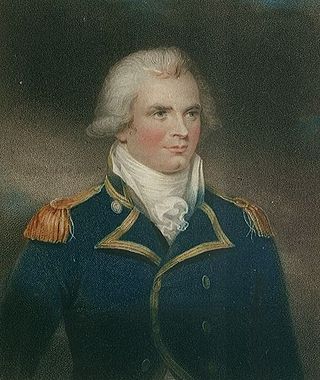
Admiral Sir Henry Trollope, GCB was an officer of the British Royal Navy.

HMS Monmouth was a 64-gun third rate ship of the line of the Royal Navy, launched on 23 April 1796 at Rotherhithe. She had been designed and laid down for the East India Company, but the Navy purchased her after the start of the French Revolutionary War. She served at the Battle of Camperdown and during the Napoleonic Wars. Hulked in 1815, she was broken up in 1834.
Hugh Pigot was an officer in the Royal Navy. Through his connections and their patronage, he was able to rise to the rank of captain, despite apparently poor leadership skills and a reputation for brutality. Writing in 1826 William James stated, "...he has been described to us by those who knew him well, as one of the most cruel and oppressive captains belonging to the British navy." While he was captain of HMS Hermione (1782), he eventually provoked his men to mutiny. This mutiny became the bloodiest in the history of the Royal Navy and left Pigot and nine other officers dead. The Navy hunted down and executed a number of the mutineers and recaptured his ship from the Spanish, to whom the mutineers had turned it over.

Admiral Sir Edward Joseph Hamilton, 1st Baronet KCB was an officer of the Royal Navy, who saw service during French Revolutionary and Napoleonic Wars, eventually rising to the rank of admiral.
Vice Admiral Sir Edward Griffith Colpoys KCB was a senior officer of the British Royal Navy during the early nineteenth century. The nephew of a prominent admiral, John Colpoys, Edward Griffith was able to rapidly advance in the Navy, until his involvement at his uncle's side in a violent confrontation aboard his ship HMS London in 1797 left a number of men dead and the Channel Fleet in a state of mutiny. Griffith's career recovered from the events of the Spithead Mutiny and he enjoyed a successful period as a frigate commander off the French coast, later becoming the captain of the ship of the line HMS Dragon during the Trafalgar campaign. Although Dragon did not fight at the climactic Battle of Trafalgar, Griffith was engaged at the preceding Battle of Cape Finisterre in July 1805.
Rear-Admiral James Walker CB, CvTE was an officer of the Royal Navy. He served during the American War of Independence, and the French Revolutionary and Napoleonic Wars.

Ceres was an East Indiaman launched in 1787. She made three trips to China for the British East India Company (EIC). After the outbreak of war with France in 1793, the Admiralty, desirous of quickly building up the Royal Navy, purchased a number of commercial vessels, including nine East Indiamen, to meet the need for small two-decker fourth rates to serve as convoy escorts. The Admiralty purchased Ceres in 1795 and renamed her HMS Grampus. In 1797 the Admiralty converted her to a storeship. That year her crew participated in the Spithead and Nore mutinies. Grampus grounded in January 1799 and was destroyed.
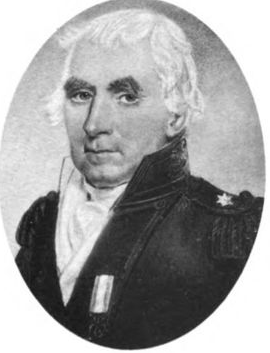
Vice-Admiral John Inglis of Auchendinny and Redhall (1743–1807) was an 18th-century Scottish Royal Navy officer who served with distinction at the Battle of Camperdown in 1797. The Battle of Camperdown was a major naval battle between Great Britain and Batavia (Dutch) in the French Revolutionary Wars won by the British on 11 October 1797.

Vice-Admiral Sir Charles Richardson was a British naval officer of the 18th and 19th centuries. His naval career began when he joined HMS Vestal as a captain's servant in 1787. In Vestal he made an aborted journey to China before serving on the East Indies Station where he transferred to HMS Phoenix and fought in the Battle of Tellicherry and the Third Anglo-Mysore War in 1791 and 1792. Having returned to England as a master's mate, Richardson fought at the Glorious First of June on HMS Royal George in 1794 before being promoted to lieutenant in HMS Circe. In 1797, he successfully combated the Nore mutiny in Circe before fighting in the Battle of Camperdown where he personally captured the Dutch admiral Jan Willem de Winter. Afterwards he became flag lieutenant to Admiral Adam Duncan and fought at the Battle of Callantsoog and the Vlieter Incident in the Anglo-Russian invasion of Holland of 1799. He then sailed to Egypt in HMS Kent where he again went onshore, fighting in the battles of Abukir, Mandora, and Alexandria in 1801.
John Yelland (1755–1827) was an officer in the Royal Navy who served during the American Revolutionary, French Revolutionary and Napoleonic wars. He commanded HMS Monarch at Copenhagen in 1801, for which he was mentioned in despatches but despite this and having served under some influential admirals, his promotion was slow and he never rose above the rank of captain.
